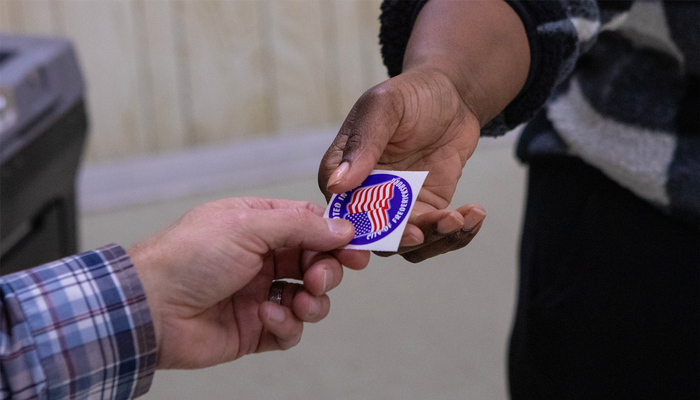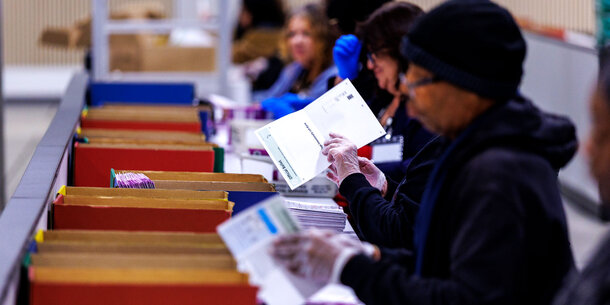This piece was first published by Electionline.
On Feb. 27, the Department of Homeland Security announced a change in its Homeland Security Grant Program that could make a huge difference for election offices around the country. In fiscal year 2023, states must dedicate at least three percent of the money they receive from this $1 billion program to election security needs, opening up tens of millions of dollars for state and local election offices in need of better security for their workers and for voters.
Previously, DHS had recommended that states prioritize spending some of the grant money received through the program on election security – with this change in policy, that is now a requirement.
This new funding has the potential to provide meaningful support to our guardians of democracy. It could help reverse the flow of dedicated professionals leaving the election administration field because they don’t feel safe in the new climate of harassment and threats.
This grant program is administered by the Federal Emergency Management Agency (FEMA), with guidance and support from the Cybersecurity and Infrastructure Security Agency (CISA). Over the past few years, CISA has conducted physical security assessments for election officials across the country, identifying security risks and making critically important recommendations for increasing physical security in offices and at polling sites. But because these assessments have no money attached, election officials are too often left with awareness of vulnerabilities and without the resources to do anything about them. The grant program’s new three-percent rule can be an important step to close that gap.
It’s true that some election offices have been lucky enough to get state or local support that has allowed them to add important security measures. For instance, individual counties in Arizona, Colorado, and Wisconsin have purchased everything from bulletproof doors and glass to video cameras and security fencing. But for every jurisdiction that has found the money to implement such measures, there are many more who could not. The new spending requirements will allow election offices to purchase the kind of basic upgrades adopted sporadically by some counties, as well as access controls and door locks to protect equipment and ensure unauthorized persons cannot gain access to buildings, and exterior and parking lot lighting to make the areas that workers use to get into official buildings more secure. It can also be used for things like table-top exercises and other training on hardening office security to meet escalating threats, as well as cell phones, radios and other communication systems that allow election workers to communicate immediately if they are threatened. Making these facilities safer is not only important for the workers who spend their days there, but also for members of the public who visit these buildings to register to vote and cast ballots.
Unfortunately, election workers are not just threatened where they work. Some officials, like Detroit City Clerk Janice Winfrey, have been stalked, confronted, and threatened outside their own homes. States can use the new federal funds to provide election workers with personal security training, or to help hide personal information that attackers have used in the past to harass election workers and their families outside of the office.
Make no mistake, the threats against election workers are a new and deeply disturbing trend in American elections and will require far more than the new funds promised by FEMA. The Brennan Center for Justice at NYU Law has estimated that the nationwide cost for instituting best practices to protect election workers from the rise in threats of physical violence could be as much as $300 million over the next five years. Just as importantly, money alone cannot solve this problem. All levels of government must do more, including by arresting and prosecuting those who have illegally threatened election workers.
This effort by DHS, FEMA and CISA to get more security funding to election officials is an important first step. It is also a meaningful statement from the federal government that it understands threats of physical violence against those who run our elections are a threat to our democracy itself, and that election officials and workers should not feel they are alone when they stand up for free and fair elections for all of us.
For more information on available funding, election officials should contact their State Administrative Agency, which can be found here.
Lawrence Norden is senior director of the Elections & Government Program at the Brennan Center for Justice at NYU Law. Derek Tisler is counsel in the program.




